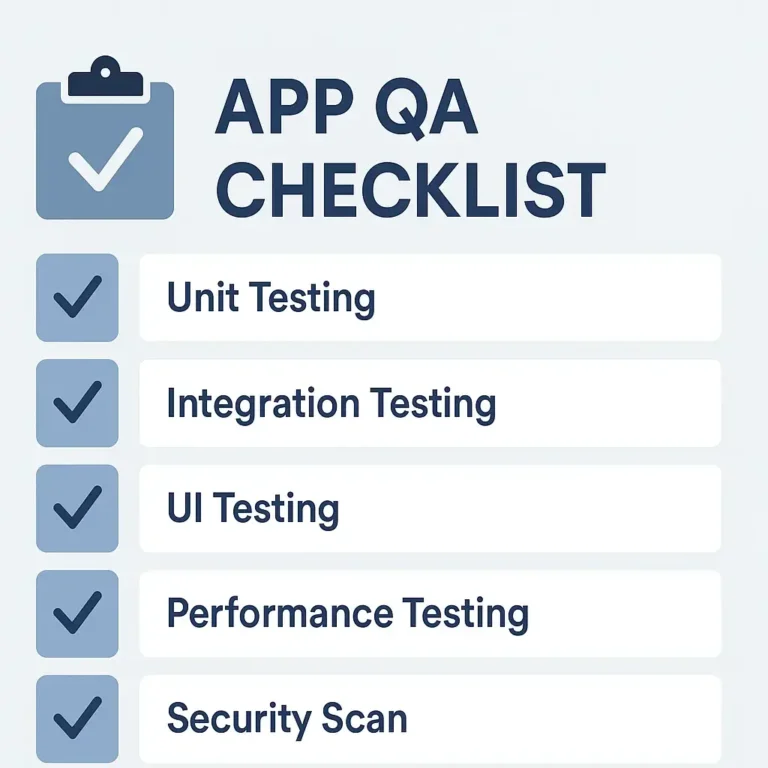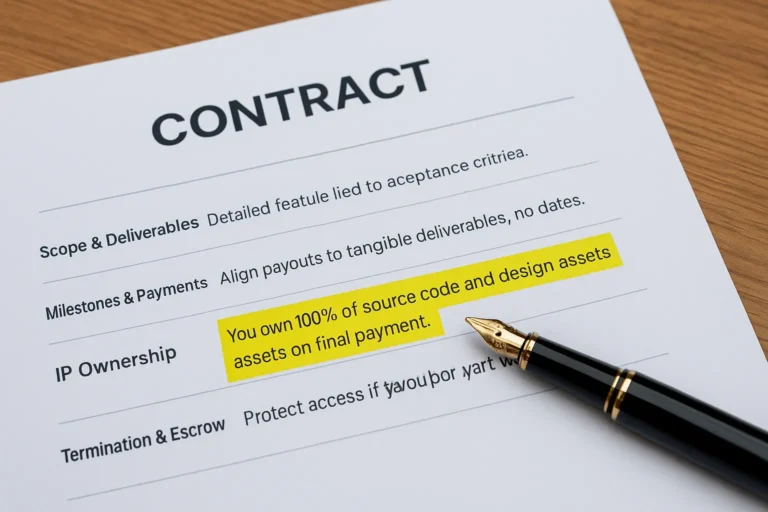Mobile apps can turbo-charge your business growth, but choosing the wrong development partner often ends in blown budgets, security holes and missed deadlines. This guide walks Australian owners and tech leads through a proven question-set that filters out the pretenders and lands you a partner who’ll ship a secure, on-brand product on time and on budget.

Why a Solid Vetting Process Saves Money (and Stress)
A good-looking proposal isn’t proof of competence. Due diligence up-front is cheaper than rewrites later. In IT Nexa’s experience, rescuing a half-built app can cost 50–80 per cent more than building it right the first time.
“Micro-case study: Adelaide-based retailer Outback Fitness rushed into a low-cost deal. Six months later they’d sunk $28 k into an app riddled with crashes and no analytics. After switching to a vetted mobile application development company, they relaunched in eight weeks and doubled online sales within a quarter.”
1. Experience & Portfolio: Proof Beats Promises
Key questions
“Can you show recent projects similar to ours?”
Look for matches in industry, user base and complexity.“Which team members built those apps, and will they work on mine?”
Senior resumes should align with what’s pitched.“May we speak to two previous clients?”
A credible agency welcomes reference checks.
What “good” looks like
Interactive demos, not just screenshots.
Clear results: downloads, retention, revenue.

2. Technical Chops & Stack Fit
Great design means little if the stack can’t scale.
Ask:
“Which languages and frameworks do you recommend for our goals?”
Listen for rationale covering performance, future maintenance and talent availability in Australia.“How do you handle CI/CD and automated testing?”
Continuous integration slashes regression bugs.“What is your approach to accessibility and WCAG 2.1 AA compliance?”
Mandatory for many government and enterprise contracts.
Red flags
One-size-fits-all answers.
No mention of containerisation or infrastructure-as-code.
3. Project Management & Communication
Poor comms derail projects faster than bad code.
Probe deeper:
“Which project methodology will you use – Agile, Kanban, Hybrid?”
The answer should link to your decision cycles.“How often will we receive sprint demos?” (Tip: fortnightly demos keep scope creep visible.)
“What collaboration tools do you provide for stakeholders who aren’t developers?”
Think ClickUp, Jira, or Trello – not long email chains.

4. Quality Assurance, Security & Post-Launch Support
- According to the Australian Cyber Security Centre, 43 % of breaches stem from unpatched software. Quality and security cannot be bolt-ons.
Must-ask questions
“What percentage of your budget is allocated to QA?”
Benchmarks sit at 20-30 %.“How do you handle penetration testing and OWASP Mobile Top 10 risks?”
Look for third-party auditors.“Do you offer a bug-fix warranty after launch?”
Standard is 30–90 days.
Support plans matter
A mobile app is a living product. Clarify SLAs for uptime, response times and upgrade cycles.
5. Contract Essentials & Red Flags
Even the best conversations need a watertight contract. Non-technical founders often overlook critical clauses:
| Clause | What to lock down |
|---|---|
| Scope & Deliverables | Detailed feature list tied to acceptance criteria. |
| Milestones & Payments | Align payouts to tangible deliverables, not dates. |
| IP Ownership | You own 100 % of source code and design assets on final payment. |
| Termination & Escrow | Protect access if the vendor folds or you part ways |

Portfolio match
Team bios
Client references
Similar business-size experience
Preferred tech stack & reasoning
CI/CD process
Accessibility approach
Source-code management
Project methodology
Sprint demo frequency
Non-technical stakeholder tools
QA budget & methods
Security testing plan
Post-launch warranty
Contract IP, escrow & exit terms
Print this list and bring it to your next vendor meeting.
5. Contract Essentials & Red Flags
We get it. Vetting vendors takes time you’d rather spend on core business. That’s where ITNexa can help – from shortlist to signed contract.
Conclusion: Your App Deserves Better Than Blind Faith
Choosing to hire app developers is a strategic decision, not a lucky dip. By asking the right questions you safeguard budget, brand and user trust. When you’re ready, let’s build an app that propels your growth – minus the headaches.


